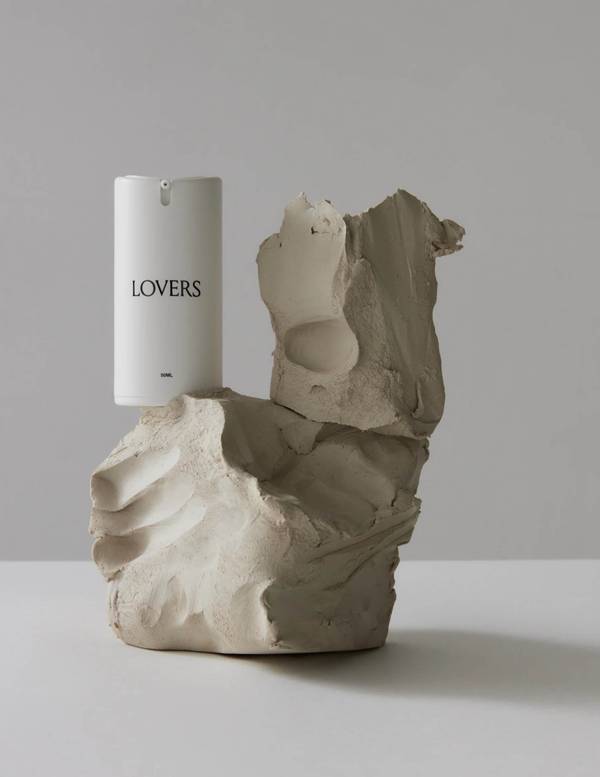Gynaecologist and fertility specialist Dr Raelia’s 5 things women should know about their bodies

Gynaecologist and fertility specialist Dr Raelia’s 5 things women should know about their bodies
What is it that you wish you knew about your body? Women’s health is personal and complex - but that doesn’t mean we shouldn’t be making more space for real, open and honest discussions.
Fertility, egg freezing, pregnancy, intimate health - they can all be hard and confusing topics. And accessing clear and credible information isn’t as easy as we think. Whether we’re too scared to ask or lost in the whirlwind of ‘’Dr. Google’, it’s clear that there is a need for simplified conversations.
Here, CREI Fertility specialist, Gynaecologist, Director of Women’s Health Melbourne and founder of Lovers products, Dr Raelia Lew, brings the facts. Breaking down some of the top things females should know about their bodies.
Surprise truths by the generations
20's-30's:
Our 20’s and 30’s are an age of exploration and self-discovery. Women are often shocked to discover that natural fertility decline begins at 30. Happily, more women are learning about fertile egg freezing at a relatively young age and are able to better plan for future reproductive success.
Another is that younger women flock to remove pubic hair permanently using laser. However, as gynecologists can tell you, this trend has been associated with an increased demand for cosmetic labiaplasty. This is not only due to more awareness of our exposed labial contours but also due to friction irritation of exposed delicate skin (who would have thought pubic hair actually serves a biological purpose).
40's:
Women are often surprised to learn that perimenopause lasts for a decade, and for most people, it starts around the age of 40. Many women in this age bracket still desire fertility. A much higher proportion of women aged 40+ seek IVF services to try to have a baby. Natural egg quality declines rapidly from 35 onwards. 50% of women over 40 who plan to have a baby may only achieve a successful pregnancy with the help of egg donation, or if they have frozen eggs earlier in life, by returning to use this resource.
The first sign of perimenopause is the shortening of the natural menstrual cycle. Periods can misbehave and become irregular for many years before ultimately ceasing. Women can experience hot flashes at the beginning of their cycles. Vaginal lubrication reduces even with arousal and lube goes from a maybe to a must.
Menopause
As women, we spend more than half our lives in this phase. Menopause mainly happens to women in their early 50’s, however there are many exceptions to this rule. Some women go through menopause much earlier in life and so this category is not age defined. Some reasons for early menopause include surgical menopause (removal of the ovaries) for cancer prevention or treatment, premature ovarian insufficiency (there are genetic, autoimmune and yet unexplained reasons for this diagnosis) or just early onset menopause, often linked to a family history of the same in previous generations.
Menopause has been portrayed in past generations as a loss of sexuality, but that is not how modern women feel.


Let’s get real about fertility
The biggest misconception is that for most people having babies is easy. Women often spend decades using hormonal contraceptives to avoid pregnancy, only to struggle to get pregnant when trying to conceive later in life.
Freezing eggs is an amazing technology that women can now access. However this is a privilege not all can afford and creating a resource of younger fertile eggs for a rainy day is not an absolute guarantee of a future baby.
Having your family early in life is still biologically your safest bet, but is not always possible.
Intimate health 101
Intimate health is not necessarily about treating disease. It can be about comfort, protection, prevention of irritation and personal fulfillment.
I wish more women realised that lubricant can be used to target, enhance and promote their own pleasure. Lovers formulations are to please you, fulfill your needs and exceed your expectations. We designed Lovers with two goals in mind. The first was to create a product that functioned exceptionally well but also felt beautiful. The second was to use medical principles to improve female sexual experiences, enhance pleasure and texturally personalise products for an individual’s preference.
Choose intimate health products for YOUR needs
Intimate health products should feel beautiful. What you use on your vulva should be as lovely as what you use on your face. It is also important that products are mindful of maintaining pH balance and do not disturb protective functions of our natural genital flora.
Lovers silicon serum is perfect for water play and times in life where extra slip is important, such as after menopause. Uniquely, Lovers prescription products utilise medical principles to enhance female pleasure. Oestrogen is an active that enhances libido, restores, nourishes and protects delicate vaginal skin in times of natural oestrogen depletion such as during breastfeeding, and in perimenopause/menopause.
CBD induces relaxation and reduces the threshold to reach orgasm. Sildenafil (sometimes marketed as Viagra) improves genital blood flow and sensitivity while low dose feminine testosterone is anaphrodisiac, increasing sex drive.
Women’s health is undervalued
Women should know that our Medicare system systematically undervalues women’s health. Gynaecological services are suboptimally funded. Women should be demanding better access from our government from rights to abortion, egg freezing, IVF and GP funding so that they have time to provide holistic education and care. Lovers recently conducted a study of 1000 Australian women of all ages and learned that 1 in 2 (50%) of women are sexually unsatisfied.

